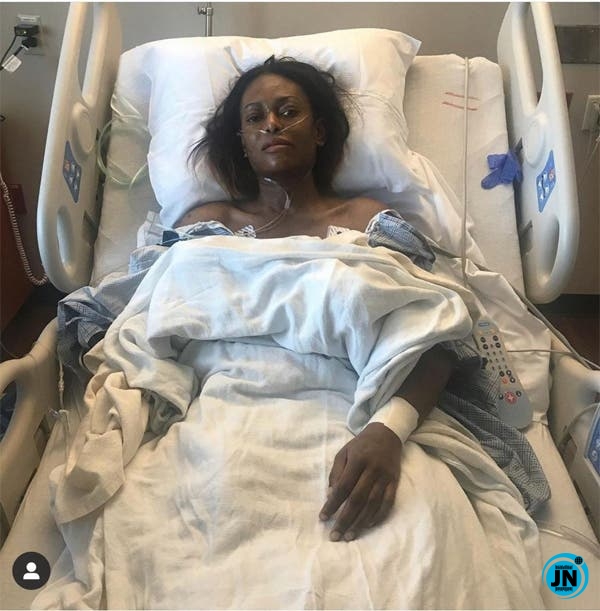
Ijeoma Isimokwenye is a survivor of Endometriosis, a disorder in which tissue that normally lines the uterus grows outside the uterus. In this interview, she recounts her ordeal with the killer's health condition.
Why did you have to consult 40 different doctors when you traveled to the United States?
I had to because my body cracked down, I was having many things going on at the same time. I was having a nerve blockade, I was very low on iron, I was suffering from fatigue, I had a lot of complications going on at the same time including lungs collapse which made me gasp for breath. This warrants me going into the emergency ward to have an oxygen ventilator just to be able to relieve the lungs from that stress. I had to keep moving from one specialist to another until I got to Parkland Hospital where I was diagnosed with “Extra Pelvic Endometriosis”.
How come much is not known about endometriosis in Nigeria?
There is little or no awareness about endometriosis in Nigeria, the reason why my case got complicated. The first time I had a lung collapse in Nigeria after a series of surgeries to remove Cyst, I went to see a gynecologist who casually told me I had endometriosis. The series of surgeries led to me having lots of scarred tissues which in turn worsened the endometriosis. The lack of excision surgeons in Nigeria is likely another reason why awareness of the disease is almost non-existent in Nigeria.
What would be your advice to women as regards endometriosis?
My advice to women especially mothers is to take complaints from their young daughters about painful menstruation seriously, that is one of the signs. It is not enough to administer pain relief medication, endeavour to take the child to a gynecologist for possible early detection of endometriosis if that is the case. Long-time neglect leads to a lot of damage if the child has endometriosis.
My case led me to depression at a point, which made me attempt suicide, due to the various medical issues I was having at the same time, a timely visit to a psychiatric doctor saved me from going on with suicide.
So, Please, mothers, do not neglect heavy bleeding and painful menstruation in your daughters.
How have you been funding the treatment?
Besides my personal income and that of my husband, I majorly got financial support from family and friends who understood my situation, they were all very supportive. Very touching was the support I got from secondary school mates Federal Govt College Enugu, besides their personal donations, they helped set up a Go Fund Me account for me in Nigeria using my details: Isimokwenye Ijeoma, Account no: 0041689955, Bank Name: Guaranty Trust Bank (GTB). It is important to note that, for now, Endometriosis does not have a permanent cure, it can only be managed. At the moment, I am in dire need of funds to carry out other surgeries, laboratory investigations, and medications. Frequent scans and medical consultations could be financially sapping. We hope to get financial assistants from NGOs, and government bodies, so I will be grateful to get any information on how to get such financial aids.
So you have to live with it?
Yes, I have to live with it, which requires lots of money, and good medical care, at the moment, Nigeria do not really have the expertise and equipment to properly manage endometriosis patients, and as such you find endometriosis patients relocating to other countries especially the US where they are sure of reliable medical attention.
Are you married? If yes, has this affected your marriage in any way?
Yes, I am married and I am one of the lucky ones who have a supportive husband. My marriage has not been affected in any way, instead, the tough times endeared us more to each other, it has really kept me going.
Firstly, endometriosis financially consuming because it requires lots of medical specialists, the pains and trauma that comes with it mean they have to be strong mentally and be focused to fight back! Do not be alone, join support groups. We have Endosurvivor groups present in Nigeria and abroad. Try as much as possible to be happy, get busy as much as your health can carry you.
For how long have you lived with it and what has kept you going?
I have lived with it for 20 years of my life. What has kept me going were prayers, family, friends, and support groups, when those around you show you much love and attention, you tend to be able to fight back stronger and have a reason to hold on.
What have you learned from your health experience so far?
I have learned to be patient; my belief in God waxed stronger and most importantly made me value more the importance of good health and the need for a good health care system all over the world.